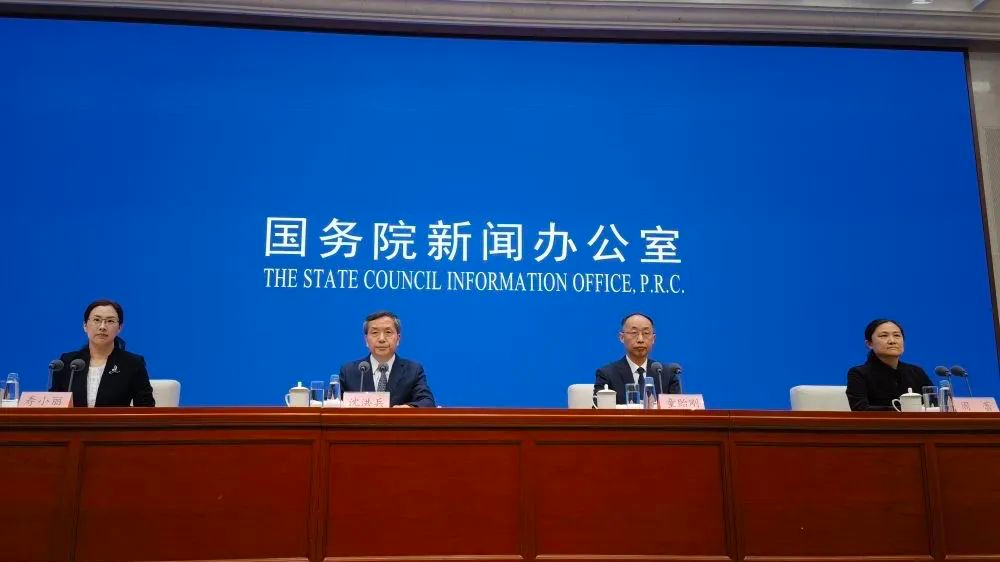
The State Council Information Office holds a press conference on the novel coronavirus origin-tracing work in Beijing, China, April 8, 2023. /Xinhua
The State Council Information Office holds a press conference on the novel coronavirus origin-tracing work in Beijing, China, April 8, 2023. /Xinhua
Editor's note: Lu Jiahai is a professor at the Department of Epidemiology, School of Public Health, Sun Yat-Sen University, and the director of National Medical Products Administration (NMPA) Key Laboratory for Quality Monitoring and Evaluation of Vaccines and Biological Products. The article reflects the author's opinions and not necessarily those of CGTN.
"Throughout the first phase of the joint studies, China provided international experts with all materials related to the origins of the virus, and we did not hide any cases, samples or testing and analysis results," affirmed Shen Hongbing, deputy chief of the national administration of disease prevention and control and director of the Chinese Center for Disease Control and Prevention (China CDC) at a press conference on April 8. He was talking about Severe Acute Respiratory Syndrome Coronavirus 2, or SARS‑CoV‑2, that causes COVID-19.
One can say that COVID-19 pandemic is the most widespread global pandemic in the past century that posed a major threat to human life and health. A responsible country should not only do a good job in the prevention and control of the pandemic at home but also make contributions to the world and cooperate with the international community in the global fight against the virus. While China strives to boost international cooperation against COVID-19, it also takes the issue of origin-tracing of the SARS-CoV-2 virus seriously.
Origin-tracing is a matter of science. The whole process should be kept away from political interference because any behavior that violate the scientific spirit is irresponsible to the mankind. Tracing the origin of the virus cannot be done by a single country as the inspection should cover all the countries closely linked to the epidemic. It requires joint efforts from the global scientific community to be open, transparent, objective and rational and oppose any "presumption of guilt." It should be clear that no country has the right to put its own political interests above people's lives, nor should a matter of science be politicized for the purpose of slandering and attacking other countries. The purpose of origin-tracing is to enhance scientific understanding of viruses so as to better cope with major infectious diseases in the future and help improve the global public health system and governance capacity, which is a broad consensus of the international community.

A medical worker prepares a dose of COVID-19 vaccine at a vaccination site in Beijing, China, December 9, 2021. /Xinhua
A medical worker prepares a dose of COVID-19 vaccine at a vaccination site in Beijing, China, December 9, 2021. /Xinhua
China has long taken a scientific attitude as it engages in global cooperation on science-based origin-tracing. China and the World Health Organization (WHO) jointly conducted the China part of a global study on the origins of COVID-19. The first phase of the joint research was successfully completed in Wuhan, and its report was fully recognized by the WHO and the international and domestic experts involved in the research. The problem of tracing the origin of the virus is like a huge jigsaw puzzle. Besides Wuhan, the WHO team should also work in other parts of the world where the virus may have existed in the early days, so that a comprehensive, objective and scientific map of the spread of the virus is possible.
In fact, in the past 20 years, there have been many pandemics around the world, including Avian Influenza H5N1 (Bird Flu), Severe Acute Respiratory Syndrome (SARS), Ebola virus disease (EVD), and Mpox (monkeypox). More than 75 percent of emerging infectious diseases come from animals, and the frequency of outbreaks is increasing rapidly. Zoonosis causes approximately 2.5 billion infections and 2.7 million deaths every year. At the same time, antibiotic resistance, climate changes, and air pollution tend to cause more human health risks than ever. Human beings, animals and the environment are an inseparable whole, and it is no longer possible for a single discipline or organization to cope with and deal with such complex issues.
Within this background, the issues of public health, veterinary health, food safety and environmental health are complex and contradictory, which can be viewed as both a challenge and an opportunity. One Health, which recognizes that the health of people is closely connected to the health of animals and our shared environment, has become an internationally recognized key strategy for solving major and complex health issues. It advocates interdisciplinary, interdepartmental, interregional and national cooperation and exchanges, and effectively integrates medical, veterinary, environmental, and resources such as disease control to address the challenges posed by zoonotic diseases and promote the health of humans, animals and the environment.
The COVID-19 pandemic and China's successful control of it have made people more aware of the importance of One Health. Going back to previous outbreaks, not only the origin of the virus but also the fight against the pandemic have always been a complex and difficult task that required efforts of multiple countries and origins analysis of multiple regions. China upholds the concept of "human community with a shared future" and is willing to communicate and cooperate with other countries for better public health for the whole of mankind.
(If you want to contribute and have specific expertise, please contact us at opinions@cgtn.com. Follow @thouse_opinions on Twitter to discover the latest commentaries in the CGTN Opinion Section.)